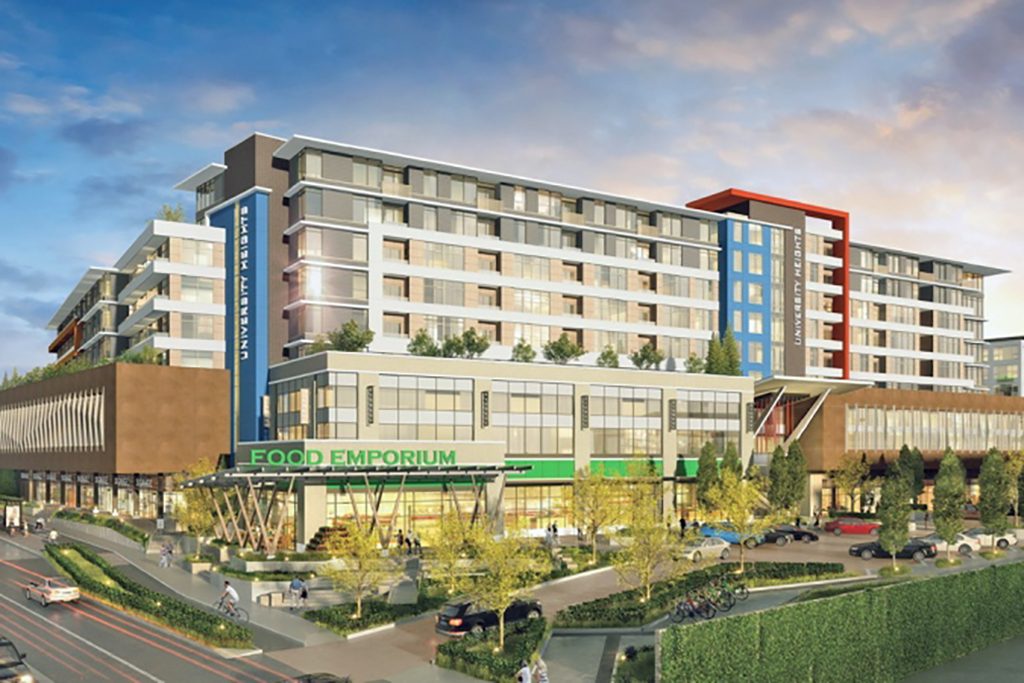Development cost charges (DCCs) in Saanich, B.C. are set to skyrocket which could jeopardize construction and development in that community, say construction stakeholders.
“The municipality has gone full steam into increasing DCCs and basically it has broadsided developers and their projects,” said Casey Edge, executive director of the Victoria Residential Builders Association (VRBA). “Even though those DCCs won’t come into effect right away, Saanich’s approval process is, by their own admission, a couple of years. Saanich has one of the slowest processes in the region. And the DCCs kick in when they get the building permit.”
Edge also explained that while it has been 20 years since the city updated its DCCs, it should be only a 40 per cent increase to match inflation. Instead, he noted the city has increased it by at least 180 per cent for builders and much more for others, depending on the project specifics.
Edge added that the change also violates the province’s best practices guide which states that DCCs must be applied with “fairness and equity, accountability, and certainty.”
Edge said the city has also hit developers with a resolution passed in August that kicks market housing to the back of the approval process line to fast-track government-funded affordable housing projects.
“Market housing will be put on the back burner,” said Edge. “So not only have they raised the DCCs on market housing, they have also created a slower, more obstructive process.”
The VRBA has written to the Minister of Housing to contest the increase and ask for more time to find a solution that meets city and developer needs.
In a press release, Saanich Mayor Fred Haynes defended the changes, saying they are comparable to other cities. He also acknowledged that it could also lead to higher home prices.
“This change brings us in line with modern DCC fees in other comparable municipalities in B.C.,” said Haynes. “These changes mean that developers in Saanich will pay increased fees for their projects, which may impact housing prices for purchasers. However, applications for new homes and buildings that have been submitted prior to the bylaw final reading in 2020 will receive an additional one-year grace period before new fees are applied. One year after the final bylaw is approved, increases to the fees will be phased in over five years.”
He said the city is trying to improve its development application process and anticipates wait times will lessen and certainty will increase.
“We want to harness the benefits of new construction in Saanich but need to share the expense of the infrastructure across all stakeholders,” said Haynes.
Wesbild, a company developing the University Heights project in Saanich, submitted a letter to council explaining the impact the DCCs could have. The project includes 528 perpetual rental units, 52-below market rental units, and micro suites to try and address the region’s housing affordability issues. The company is also promising $500,000 for the city’s affordable housing fund, infrastructure improvements, land for parks and other voluntary amenities.
“By layering on a DCC rate increase of 390 per cent, it puts the redevelopment of this site at a real risk of not being developed, and seriously jeopardizes the volunteered community amenities to date,” wrote Steve Forrest, Wesbild’s vice-president of real estate.
Forrest added that large fee increases can slow down or halt developments in tight markets and the costs may become too much for builders to overcome.
The United Association Canada (UAC), which represents Canadian trades workers, also wrote to the city stating that the increase could risk job opportunities for its members.
“The proposed DCC rate hikes represent a major increase from the current policy and we understand from our partners in the UDI (Urban Development Institute) that this change could render projects currently in the rezoning and development permit application stage dead on arrival,” wrote Mike Ellis, business representative and marketing director for UAC. “We take these types of policy changes very seriously as they have the ability to negatively impact the ability of our members to find employment.”
The UAC asked the city to increase the grandfathering period.
Follow the author on Twitter at @RussellReports.











Recent Comments